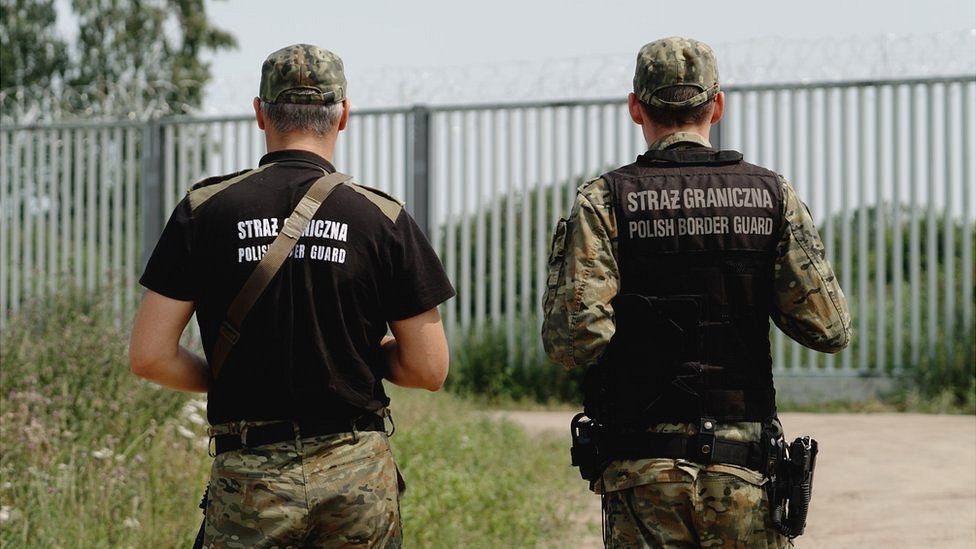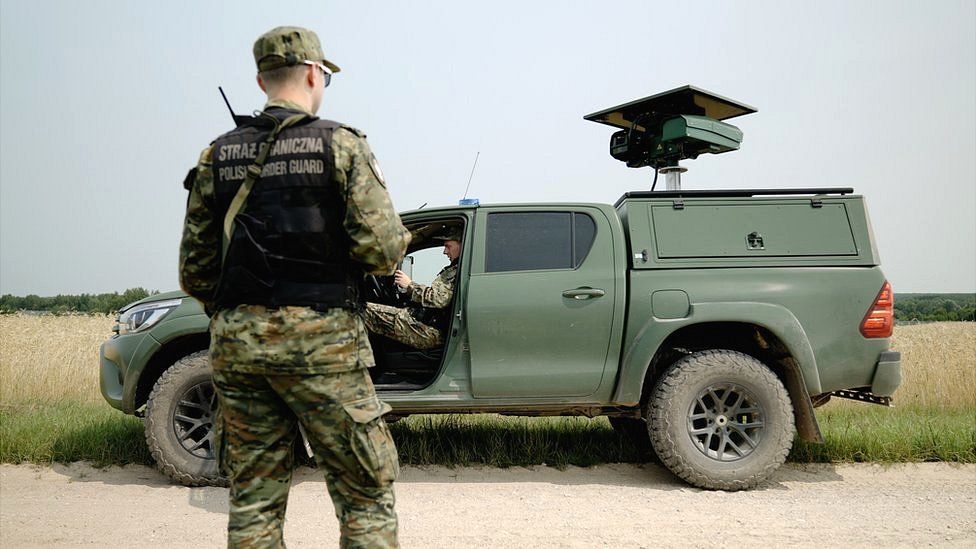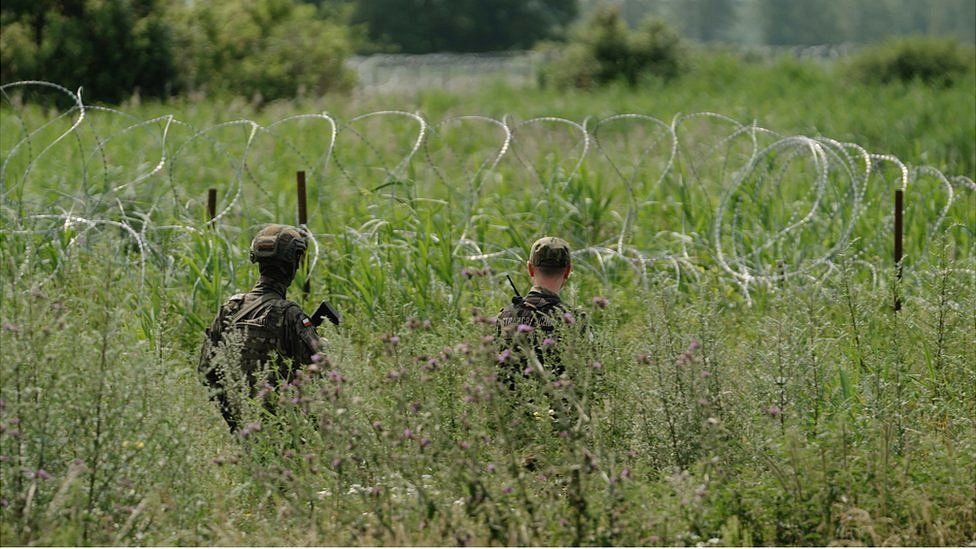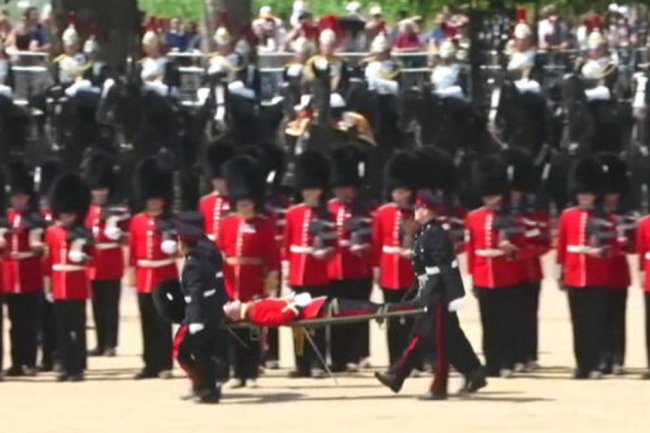[World] Ukraine war: Poland strengthens Belarus border over Wagner fears
Image source, Matthew Goddard/BBCImage caption, Border guard patrols are being stepped up on Poland's eastern edgeBy Sarah Rainsford, BBC Eastern Europe correspondentKrynki, Poland-Belarus borderThe prospect of mercenaries from the Russian Wagner group moving to Belarus as part of the deal struck to end their mutiny has made Poland extra wary of its neighbour.A border once marked by a few pillars and wooden look-out posts has already been transformed by miles of tall metal fencing, thermal cameras and spotlights.They were installed after Belarus began encouraging thousands of migrants to cross into Poland two years ago in what Warsaw calls an act of hybrid warfare; Minsk and Moscow are close allies.Ahead of this week's Nato summit in Lithuania, the Polish government has been warning that Wagner forces could be used to spark more trouble, so it's deploying hundreds of extra officers at its eastern border as reinforcements."The biggest threat is that our neighbour, Belarus, is completely
![[World] Ukraine war: Poland strengthens Belarus border over Wagner fears](https://www.9020blog.com/uploads/images/202307/image_750x_64acb7cc6bf47.jpg)

The prospect of mercenaries from the Russian Wagner group moving to Belarus as part of the deal struck to end their mutiny has made Poland extra wary of its neighbour.
A border once marked by a few pillars and wooden look-out posts has already been transformed by miles of tall metal fencing, thermal cameras and spotlights.
They were installed after Belarus began encouraging thousands of migrants to cross into Poland two years ago in what Warsaw calls an act of hybrid warfare; Minsk and Moscow are close allies.
Ahead of this week's Nato summit in Lithuania, the Polish government has been warning that Wagner forces could be used to spark more trouble, so it's deploying hundreds of extra officers at its eastern border as reinforcements.
"The biggest threat is that our neighbour, Belarus, is completely unpredictable," Michal Bura of the local border guard explains, although all is calm as we talk - apart from swarms of vicious summer bugs in the wheat fields.
"We have to be ready for any developments. Maybe Wagner will be a problem, but no one really knows why they're going there or what they're preparing for."

It's more than two weeks since Yevgeny Prigozhin and his band of mercenaries swept into the southern Russian city of Rostov unhindered, sending a second armed group marching towards Moscow, but the mutineers' fate is still murky.
The hasty deal that stopped their advance was meant to see Wagner disbanded and its fighters exiled to Belarus with their leader. But a large tent camp outside Minsk, likely prepared for them, stands empty and no Wagnerites have yet been spotted.
Instead, we've found signs that the group are still operating at home, despite going so rogue that President Vladimir Putin accused them of stabbing Russia in the back - and he loathes betrayal.
"Yes, we're still recruiting, everything's as normal," I was told in a voice message this weekend, after contacting Wagner using a male name.
I was then sent detailed written instructions on how to find the mercenaries at their training camp near Krasnodar in southern Russia, where it's always been.
"At the checkpoint… ask the soldiers how to find Wagner PMC," the message read. "At the second checkpoint, say Anatoly sent you, and you're there about signing up."
In the immediate aftermath of the mutiny in June, we had been surprised to see Wagner's contacts across Russia still listed openly online. Everyone we reached then told us they were still operating.
Those lists have now disappeared and when I called the numbers we had saved, the lines were disconnected or went straight to voicemail.
But an online contact remains active.
As a potential new Wagnerite, I was told to bring flip-flops for the shower and my own underwear, a clean bill of health and no drug habit. In return, I'd be put through my paces for an instructor to decide where best to deploy me.
When I asked whether I would be sent to Ukraine, though, "Anatoly" stopped replying.

Most Belarusians won't be sorry if Wagner never shows up there.
Online chatter shows a lot of concern about being sent an "army of criminals", a reference to Wagner's recruitment from Russian prisons.
"How can they herald anything good?" Valery Sakhashchyk agrees, a former paratrooper commander now responsible for defence in a Belarusian opposition cabinet-in-exile.
But his eyes light-up when he talks of the mercenaries' march on Moscow last month.
"Not long ago, the whole world thought of Russia as a giant, strong bear. Now we see that's all empty," Valery says, explaining that the Kremlin's weak response to the mutiny had fed his own hope for change. "The whole system is rotten... and I think it's even worse in Belarus."
Valery doubts that Wagner will ever relocate to his country in big numbers or that Prigozhin himself will settle so close to Russia and its FSB security service, after his betrayal.
The whole world thought of Russia as a giant, strong bear. Now we see that's all empty
"I think he'll end up somewhere where it's harder for the FSB to find him. In Belarus, the FSB don't even wipe their feet at the door. They just march in and do what they want."
Even if Wagner do eventually arrive in Belarus, Poland's worries and warnings may be motivated as much by domestic politics as security fears.
"They are nothing the border guard can't deal with, no match for what we have," argues Piotr Lukasiewicz, of the Polish political analysis group Polityka Insight.
"But as a political tool it can be quite useful to sell [Wagner] as a great danger," he adds. "We'll see how it develops," he says, but he thinks the government is "crying wolf" to boost its own security credentials ahead of elections this autumn.
And yet, very little in the mystery of the Wagner mutineers is clear, even now.
So Poland's border patrols remain on high alert, drones and cameras trained beyond the wheat husks and the beehives to the solid grey fence topped with barbed wire that now marks the dividing line with Belarus.
On Poland's eastern edge, the border guard are stepping up their patrols.
What's Your Reaction?

















